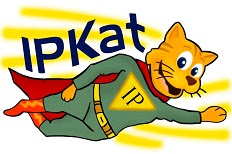 From Dr Ken Shadlen, Reader in Development Studies at London School of Economics and Political Science (LSE), the iptango received an interested article called “The political contradictions of incremental innovation: lessons from pharmaceutical patent examination in Brazil”.
From Dr Ken Shadlen, Reader in Development Studies at London School of Economics and Political Science (LSE), the iptango received an interested article called “The political contradictions of incremental innovation: lessons from pharmaceutical patent examination in Brazil”.
I was planning to give you a summary or at least an inside of this article but it is so good that I do recommend reading it all. The article is very much focused on the situation of patent administration and its process and so, the situation experienced by the pharmaceutical industry when filing an application at the Brazilian Instituto Nacional da Propiedade Industrial (INPI). The article however covers some other interesting issues, such as:
- It explains the so-called ‘neodevelopmental patent regimes’ which goals is to facilitate to nationals the access to knowledge and so encouraging innovations; yet, it also illustrates the political contradictions between these objectives.
- It covers the fact that Brazil did not protect pharmaceutical products (patent was not granted to this type of products and/or processes) and so, it needed to reform its law and legislation due to its obligation as a member of the WTO. In the same line it tries to bring awareness between strong protection and its relation to high prices and hence, its effect on access to medicines.
The author goes on to study (in depth) this policy: how it is designated to operate and how it functions in practice. At the end he states that this health-oriented patent policy “has become fraught with tensions” and explains the conflict between these two institutions (INPI and ANVISA) and so, he refers to the fact that they have become weaker.
This article is a significant contribution made by Dr Ken to our IP Latin America community.












